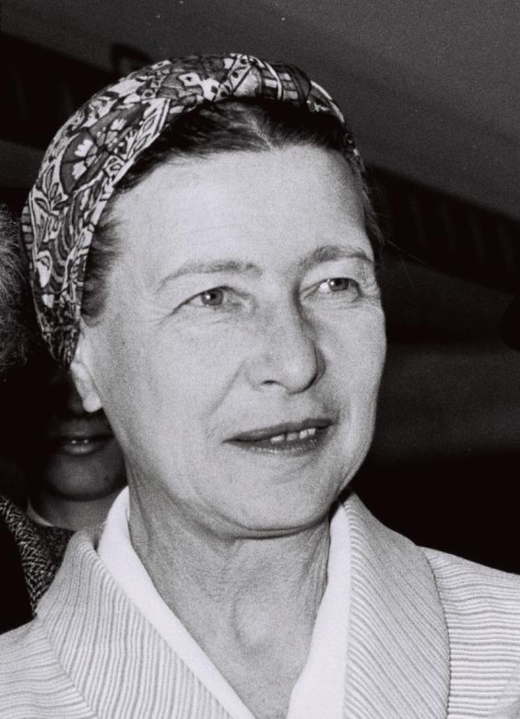Important dates
- January 9, 1908: birth of Simone Lucy Ernestine de Beauvoir in Paris, France
- 1929: Graduate in philosophy at La Sorbonne
- 1931-43: Teaching
- 1943:Publish L’invitée
- April 1945: Ecstasy publish Les Temps modern
- 1954: Won the Prix Goncourt with Les Mandarins
- April 14, 2005: death of Simone de Beauvoir
“I am awfully greedy; I want everything from life. I want to be a woman and to be a man, to have many friends and to have loneliness, to work much and write good books, to travel and enjoy myself, to be selfish and to be unselfish… You see, it is difficult to get all which I want. And then when I do not succeed I get mad with anger.”
Simone de Beauvoir was born Simone Lucy Ernestine Marie Bertrand de Beauvoir on January 9, 1908 in Paris, France. Simone was a French feminist writer, and a member of the intellectual coalition of philosophical writers. She is mainly known for her monograph “Le Deuxième Sexe” (2 volumes, 1949; “Second Sex”) is an enthusiastic academic call for the abolition of what she called the myth of “eternal feminine”. This groundbreaking work became a classic of feminist literature.
Simone passed her “aggregation” in philosophy at “La Sorbone” in 1929, where she met Jean-Paul Sartre starting there long running cooperation. She was teaching from 1931 to 1943 then started writing as a job. With Sartre they started editing their monthly gazette “Les temps Modernes” (“The modern times”) in 1945. Simone de Beauvoir exposed multiple existential issues that made her highlight her implication as a writer and her will to change old-fashion and obsolete opinions. She published “L’invitée” (“She is here to stay”) in1943 which was about the burden of each part of declining couple opening their door to a younger woman. Then won the Prix Goncourt with “Les Mandarins” (The Mandarins) in 1954. Simone de Beauvoir exposed herself as a strong woman with courage and integrity, and her whole life she supported her proposition: a person’s basic choice must be made on the premise of equality between men and women. Men and women should be based on a common existence and independent structure of their sexuality. She is also famous for her speeches on the horrifying reality of what it is to be woman and the forced influence of biology when it comes to equality in he “Questionnaire” a French Tv program in 1975. She died in Paris on April 14, 2005. Her thematic choices and commitment clearly depict the life of a French female intellectual from the 1930s to the 1970s. Bold, shocking and accessible in order for everyone to be able to understand deeply implanted philosophical issues.

